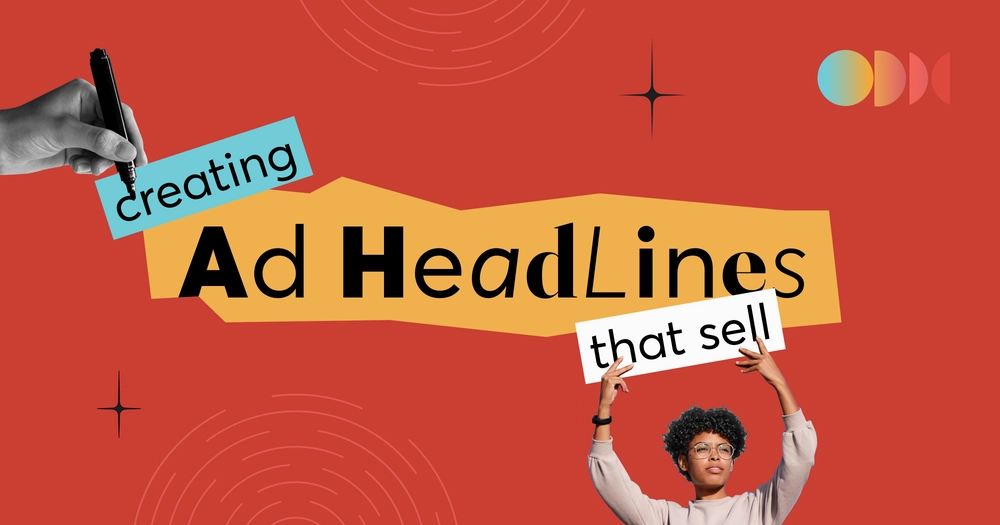 How
To Overcome
Overpromises In Your Ad Titles?
How
To Overcome
Overpromises In Your Ad Titles?



.webp)
In the face of adversity, 2023 emerged as a landmark year for MGID. This year, the digital advertising industry witnessed a transformative shift as AI took center stage. This technology became the driving force behind a wave of innovative product solutions. Despite its challenges, the AI-powered industry did not only survive, it thrived, heralding a future powered by cutting-edge technology.
.webp)
Join us in revisiting the defining moments, breakthroughs and collaborations that have shaped the narrative of digital advertising in 2023.
From product launches to fruitful partnerships, come along as we relive the milestones that defined our year.
January

With the New Year came a surge in rich media ad adoption. This dynamic format offered a fresh approach to engaging, attention-grabbing ads.
February
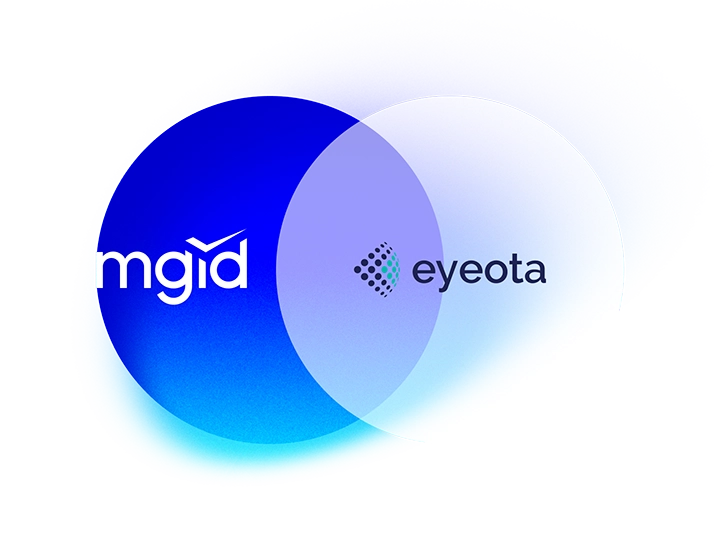
In early 2023, we forged a powerful partnership with Eyeota. Through MGID's Contextual Intelligence and Eyeota's data, we enabled privacy-compliant, behavior-driven targeting at scale..
March
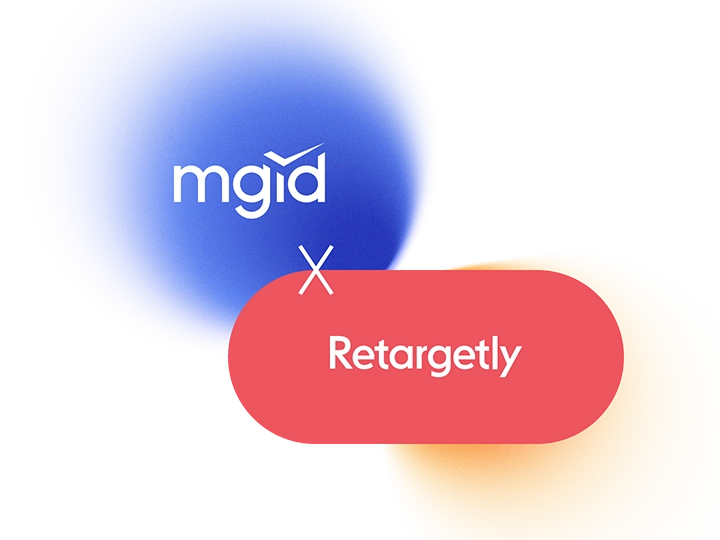
New partnerships flourished in 2023. Our collaboration with Retargetly unlocked a trove of benefits for our clients in Latin America and offered precise targeting and tailored messaging while upholding privacy regulations.
April

We hit a major milestone as the first third-party partner to support Story Ads. This integration with Google Web Stories opened up a new revenue stream for publishers, enabling visually engaging narratives for mobile-first audiences.
May

Spring marked our entry into the German market, along with team expansion. Our 18th global location in Berlin not only signified our commitment to growth but also extended our native advertising and monetization solutions to German publishers and advertisers.
June

A fruitful month, we won the Bronze Stevie® Award for MGID+ at the 10th annual Asia-Pacific Stevie Awards. In addition, MGID partnered with Playmaker, accessing their 101 million monthly users across sports media brands in the US, Canada, Brazil and Mexico.
July

MGID was awarded ISO/IEC 27001 certification, a globally recognized information security standard. This underlined our commitment to user data protection and bolstered our defenses against cyber threats, ensuring heightened security for client data.
August
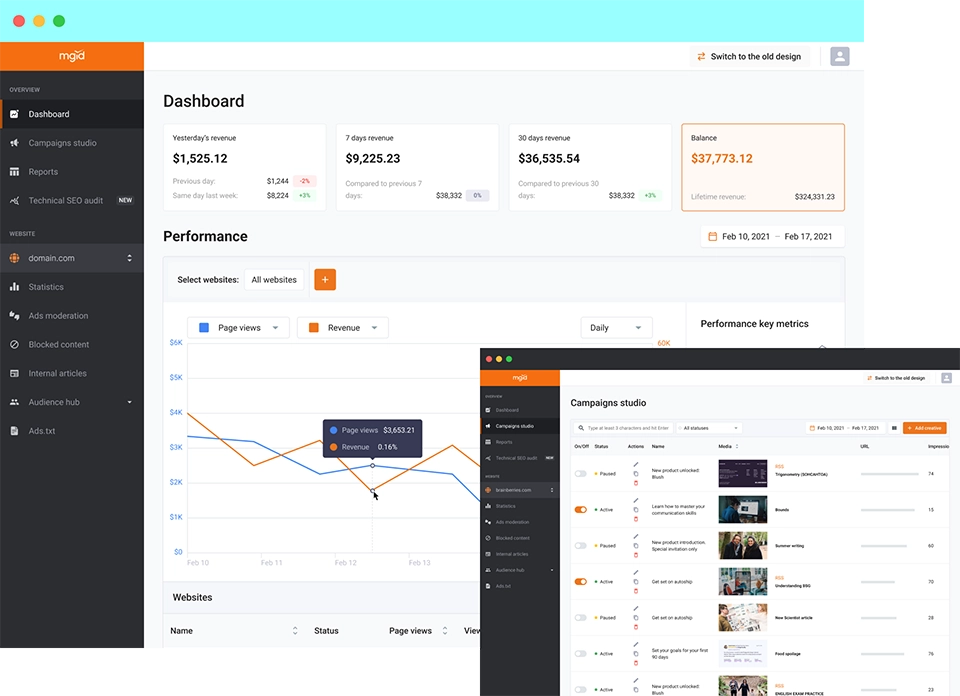
In August, we introduced the revamped Publisher Dashboard, aimed at providing our clients with a more streamlined experience! New features included instant revenue metrics, enhanced graphs and customizable statistics for a streamlined experience.
September
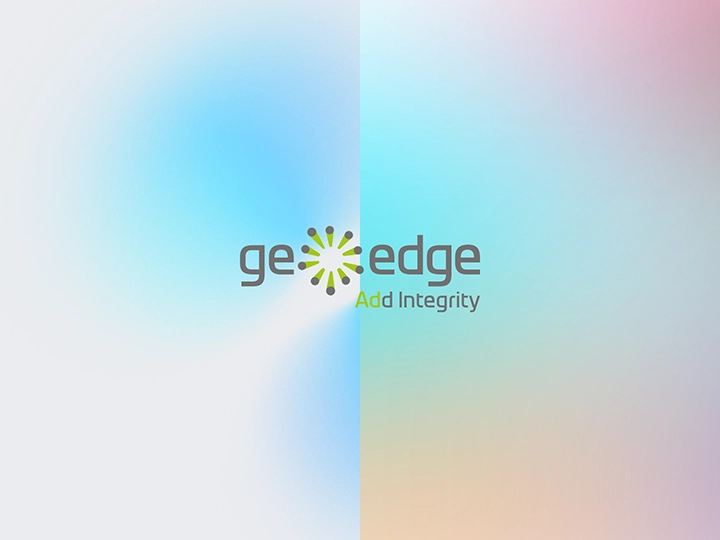
We expanded our partnership with GeoEdge, a leading ad security provider, reinforcing our commitment to a secure advertising environment. This empowered MGID's Compliance Team to ensure top-notch security for campaigns launched through our platform.
October
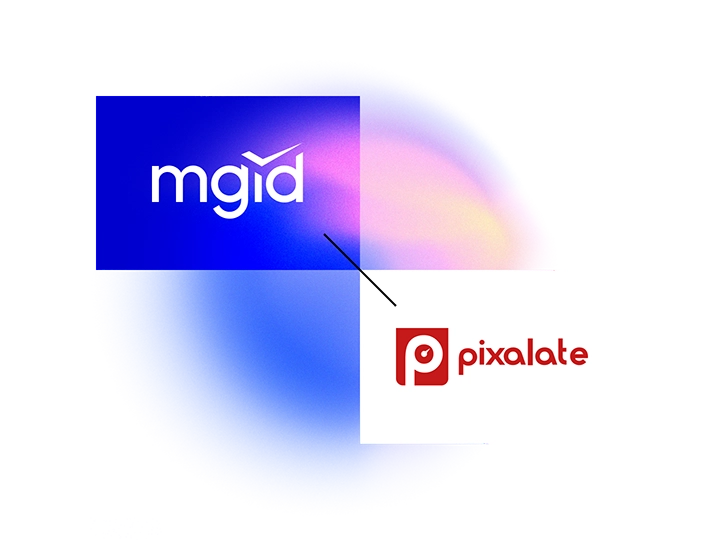
We joined forces with Pixalate, a leading ad fraud protection platform, adding an extra layer of vigilance to our security measures. This collaboration played a pivotal role in monitoring traffic quality and effectively weeding out bots and invalid inventory from our platform.
November

We upgraded our generative AI image creation feature, revolutionizing how clients generate images for campaigns. With improved rendering, simplified prompts, intuitive suggestions and keyword integration, it's a more precise and efficient process.
December
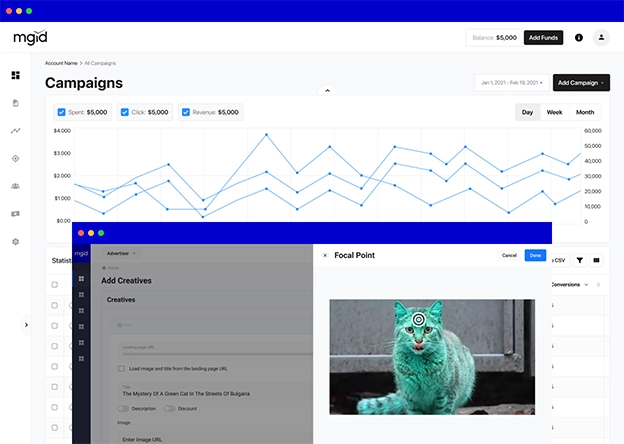
Rounding off the year, we launched MGID Ads, our updated Advertiser Dashboard. It offered a sleek design, efficient campaign setup, enhanced creative workflow for impactful ads and an expanded range of available metrics.
In our pursuit of a shared knowledge space, we wrote pieces that ignited inspiration and answered your burning questions. Your favorite reads this year covered:
There is no doubt that the future will be intimately tied with AI advancements. So, let’s explore our predictions for upcoming industry trends — all of which are driven by the transformative capabilities of AI.

Predictive AI will revolutionize the way advertisers strategize and execute their campaigns in the very near future. With the ability to analyze vast amounts of data, AI algorithms can predict consumer behavior and preferences with unprecedented accuracy. This means advertisers can not only meet the needs of their target audience but also anticipate them. Imagine the power of knowing what your audience wants now and what they want next. This predictive power allows for hyper-targeted advertising and highly personalized experiences, significantly increasing the chances of conversion.
Moreover, predictive AI can revolutionize ad spending. By analyzing historical data and real-time signals, AI can predict which channels, content and messages will generate the greatest return on investment. This allows advertisers to allocate their budgets more efficiently and to shift from reactive spending to proactive, data-driven decision making.
Of course, AI is also not without its challenges. Advertisers may face data privacy and security issues, thus requiring strict compliance measures. Moreover, over-reliance on AI can lead to a lack of human intuition in campaign strategies. So, it's crucial to maintain a balance between AI-driven insights and human creativity. Advertisers should perform regular monitoring and adjustments to ensure AI aligns with specific campaign goals.
Predictive AI will revolutionize the way advertisers strategize and execute their campaigns in the very near future. With the ability to analyze vast amounts of data, AI algorithms can predict consumer behavior and preferences with unprecedented accuracy. This means advertisers can not only meet the needs of their target audience but also anticipate them. Imagine the power of knowing what your audience wants now and what they want next. This predictive power allows for hyper-targeted advertising and highly personalized experiences, significantly increasing the chances of conversion.
Moreover, predictive AI can revolutionize ad spending. By analyzing historical data and real-time signals, AI can predict which channels, content and messages will generate the greatest return on investment. This allows advertisers to allocate their budgets more efficiently and to shift from reactive spending to proactive, data-driven decision making.
Of course, AI is also not without its challenges. Advertisers may face data privacy and security issues, thus requiring strict compliance measures. Moreover, over-reliance on AI can lead to a lack of human intuition in campaign strategies. So, it's crucial to maintain a balance between AI-driven insights and human creativity. Advertisers should perform regular monitoring and adjustments to ensure AI aligns with specific campaign goals.
Generative AI is a hot topic, with both promises and pitfalls for publishers. However, it is certainly set to revolutionize the publishing landscape. Generative AI is akin to having a creative assistant who can rapidly generate a wide array of content. This means publishers can produce articles, videos and more at an unprecedented speed without needing extensive human intervention. The result? A cost-effective way to create and improve content.
It’s not all roses, though. Some AI companies have been known to scrape publisher websites without permission. In addition, there are ethical concerns to consider. AI-generated stories may look accurate but have been known to spread misinformation, lacking citations and sometimes inventing facts. These challenges highlight the crucial role publishers and fact-checkers must take on to uphold truth and accuracy and maintain consumer trust.
Publishers who see the need to solidify their brand's trustworthiness in this era of AI-generated content sets themselves apart, especially in a landscape where delivering accurate, reliable information is paramount.
.webp)
In the ever-evolving digital advertising landscape, we predict a growing trend in attention metrics. This shift is a resurgence of past trends that placed an importance on specific ad placements. One effective approach is the utilization of rich media ads. Rich media ads are particularly valuable for mid-funnel engagement and retargeting strategies, providing a dynamic and interactive experience that captivates users' attention. While it is becoming increasingly essential to have a nuanced understanding of attention metrics, funnel optimization and performance metrics, on the other hand, still play a pivotal role in successful digital advertising campaigns. They offer a cost-effective alternative, allowing advertisers to maximize the impact of their campaigns while maintaining efficiency.
.webp)
In the post-cookie era, the attribution landscape is undergoing a significant shift. As Google's influence wanes, other players like The Trade Desk, ID5 and Intent IQ are stepping up with cookieless solutions. Major media groups are already testing these alternatives to secure their ad revenue. Therefore, it is crucial that advertisers adopt these new approaches. Telecommunication companies are also poised to become crucial first-party data providers, as they hold a wealth of user information that could reshape advertising strategies.
.webp)
The rise of retail media as a dominant force in advertising is a steady trend that shows no signs of abating. With the imminent farewell to cookies, retail giants like Walmart are set to dominate. Thanks to their treasure trove of first-party data, they can engage customers directly, sidestepping the reliance on third-party platforms that depend on cookies. This shift marks a game-changing moment, emphasizing the growing influence of retail in the advertising landscape.
Conclusion
Taking stock of the past year, it is clear that artificial intelligence has become a transformative force, taking not only our platform but also the digital advertising industry to new heights. Looking ahead, we are optimistic about what the future holds. May the coming year bring you prosperity and success. We wish you all the best and look forward to seeing you in the new year!